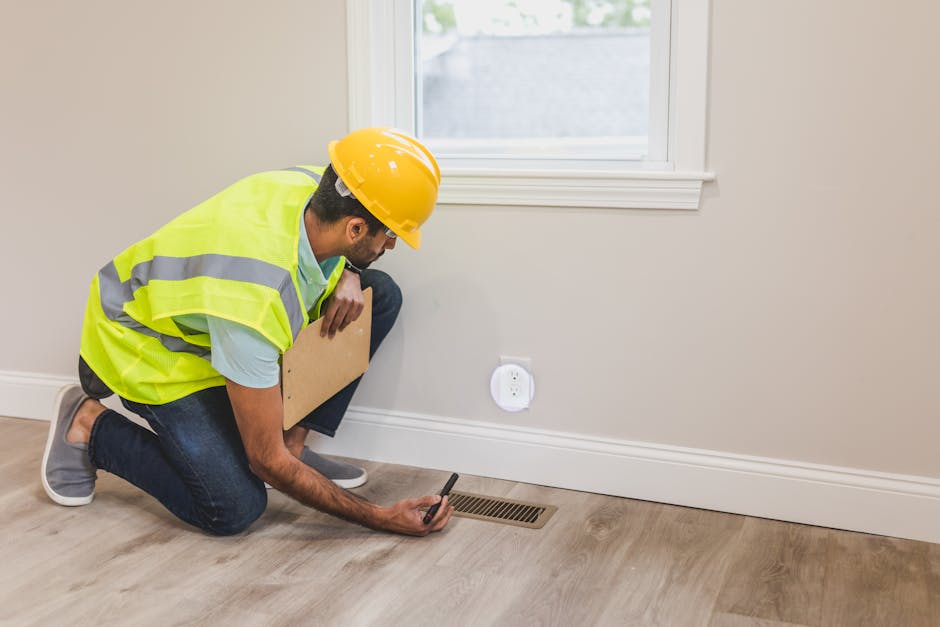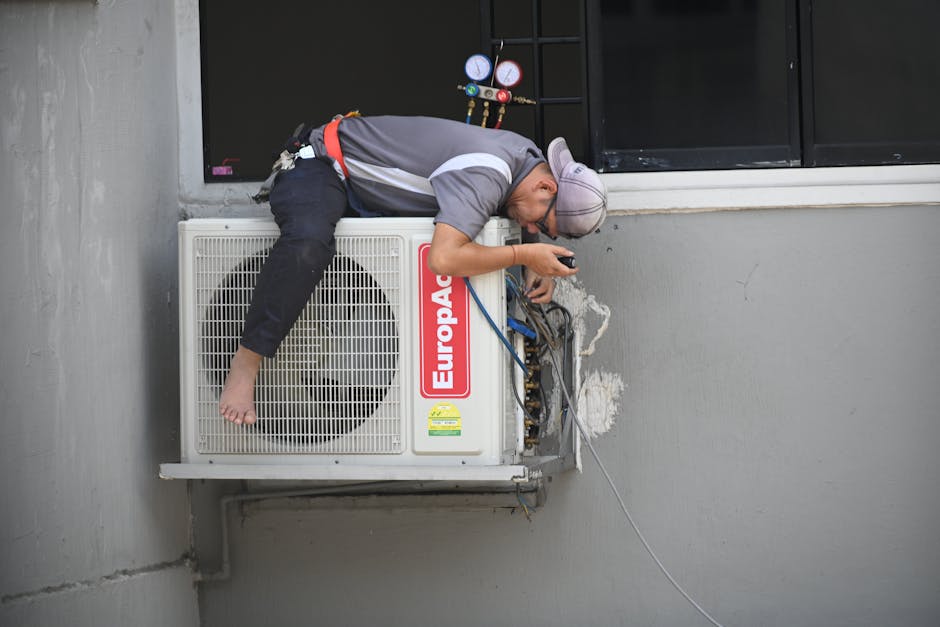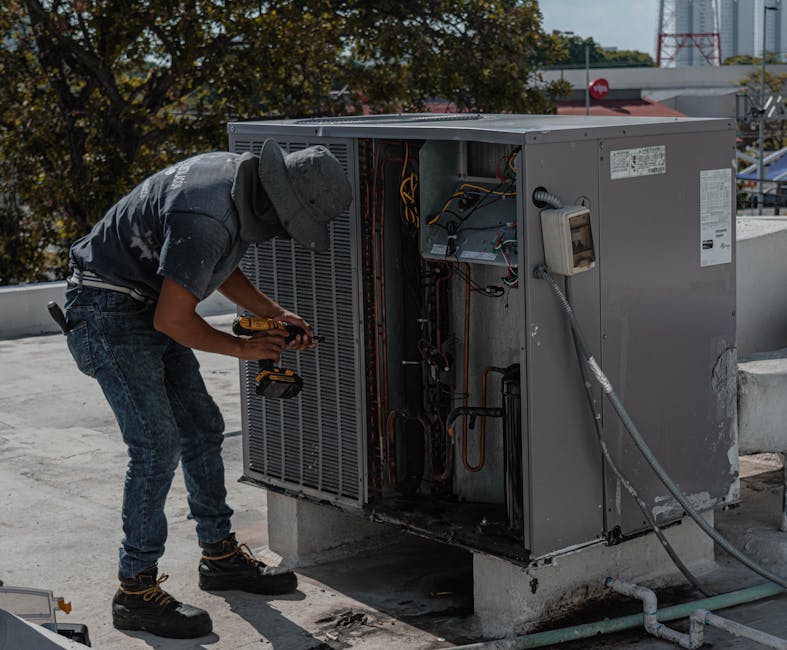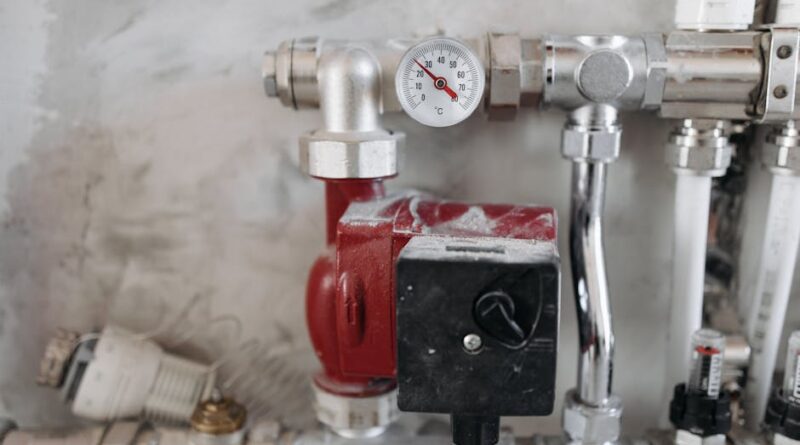The Role of Humidity in HVAC Maintenance
Did you know that humidity can make or break your HVAC system? that’s right! Whether it’s a hot summer day or a chilly winter night, the moisture in the air can significantly impact how well your heating, ventilation, and air conditioning (HVAC) system works. Understanding humidity is crucial for keeping your home comfortable and your HVAC running smoothly.
What is Humidity?

Humidity refers to the amount of moisture in the air. It plays a vital role in our daily lives, influencing everything from how we feel to how our homes function. Simply put, high humidity means a lot of moisture, while low humidity means less. But why should you care?
When the humidity level is just right, you feel comfortable. However, too much or too little can cause problems. High humidity can lead to mold growth, while low humidity can dry out your skin and damage wooden furniture. Understanding this balance is key for HVAC maintenance.
How Does Humidity Affect Your HVAC System?

Humidity plays a big role in how your HVAC system operates. Heres how:
- Cooling Efficiency: High humidity makes it harder for your HVAC system to cool your home. When the air is already saturated with moisture, it feels warmer than it actually is. Your AC has to work extra hard to remove that humidity.
- Heating Efficiency: Low humidity can make your heater work overtime. Dry air feels colder, so you might crank up the heat. This can lead to higher energy bills and unnecessary wear on your system.
- Comfort Levels: Humidity affects how comfortable you feel indoors. Too much moisture can make you feel sticky, while too little can leave you feeling chilled.
So, what’s the ideal humidity level? Most experts recommend keeping indoor humidity between 30% and 50%. This range helps your HVAC system run efficiently and keeps your home comfortable.
What Happens When Humidity Levels Are Off?

When humidity levels stray from the ideal range, you might notice several issues:
- Mold Growth: Excess moisture can lead to mold and mildew, which can harm your health and damage your home.
- Allergies: High humidity can worsen allergies by encouraging dust mites and other allergens.
- Wood Damage: Low humidity can cause wooden furniture and floors to crack and warp.
- Increased Energy Bills: An overworked HVAC system uses more energy, leading to higher bills.
To prevent these issues, regular HVAC maintenance is crucial. But what does that involve?
How Can You Maintain Humidity Levels?

Keeping humidity in check requires a combination of monitoring and maintenance. Here are some tips:
- Use a Hygrometer: This handy device measures humidity levels. Place it in your home to keep an eye on moisture levels.
- Install a Dehumidifier: In areas prone to high humidity, like basements, a dehumidifier can help reduce moisture.
- Utilize Humidifiers: During winter, when the air is drier, a humidifier can add moisture to the air. This is especially helpful for your skin and respiratory health.
- Regular HVAC Check-ups: Schedule maintenance for your HVAC system at least once a year. This ensures it operates efficiently and helps control humidity levels.
By implementing these strategies, you can create a more comfortable living environment.
When Should You Seek Professional Help?
Sometimes, humidity issues require expert assistance. Here are some signs it’s time to call in a professional:
- Persistent Mold or Mildew: If you notice growth despite using a dehumidifier, it’s time to contact an HVAC technician.
- Frequent Allergies: If allergies worsen indoors, a pro can help identify humidity-related issues.
- High Energy Bills: If your bills spike without a clear reason, it could be an HVAC problem related to humidity.
don’t ignore these signs! Early intervention can save you money and headaches in the long run.
Common Misconceptions About Humidity
Many people hold misconceptions about humidity. Lets clear a few up:
- Humidity Only Matters in Summer: Not true! Winter can also bring low humidity issues, affecting your comfort and health.
- Dehumidifiers Are Too Expensive: While initial costs can be high, they save money by improving HVAC efficiency and reducing mold.
- The More Humidity, The Better: High humidity can lead to discomfort and health issues, so balance is key.
Now that we’ve debunked these myths, you can better understand your homes humidity needs.
How to Optimize Your HVAC System for Humidity Control
Your HVAC system can be fine-tuned for better humidity control. Heres how:
- Inspect Filters Regularly: Dirty filters restrict airflow, making your system work harder. Change them every 1-3 months.
- Seal Leaks: Check for gaps around windows and doors. Sealing these can help maintain humidity levels.
- Upgrade Your System: If your HVAC is older, consider upgrading to a model with better humidity control features.
These simple steps can improve your systems efficiency and enhance your comfort.
What Can You Do Right Now?
Wondering what immediate actions you can take? Here are a few:
- Check your homes humidity level using a hygrometer.
- Clean or replace HVAC filters.
- Seal any drafts you find around windows and doors.
- Consider investing in a humidifier or dehumidifier based on your current humidity levels.
Taking these steps now can lead to a more comfortable home tomorrow.
Conclusion: Embrace the Balance
Humidity is more than just a weather statistic; it directly impacts your HVAC system and overall comfort. By understanding how humidity levels affect your home, you can take steps to maintain a healthy living environment. Remember, regular maintenance and monitoring are key!
So, the next time you feel uncomfortable in your home, take a moment to think about the humidity. A little attention can go a long way toward creating the perfect indoor climate.
For more information on HVAC maintenance, check out Energy.gov.



